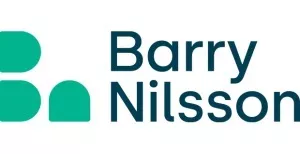The Facts
The Victorian Supreme Court has confirmed its inherent jurisdiction to act to protect the life and welfare of an unconscious person. The Court has the duty and power to protect the rights of an unconscious person to receive appropriate medical treatment, sustenance and support, provided that it is in the person's best interests.
On 11 October 2010, Dragan Slaveski was admitted as an inpatient at the Austin Hospital in Melbourne, having collapsed suddenly from a catastrophic brain stem haemorrhage. He was in an irreversible coma as a result of the stroke, and his breathing was facilitated by a tube that had been inserted into his trachea. He was neurologically unresponsive. Mr Slaveski's family was informed that he had no realistic prospects of survival, and the medical staff recommended that he be permitted to die with dignity.
On 14 October 2010, Mr Ljupco Slaveski ("Mr Slaveski Jnr"), appeared before the Victorian Supreme Court without any motion or affidavit at which time he referred the judge to comments made by a doctor treating his father that he was going to "pull the plug" on his father because the family "did not have a Court order to stop me". Mr Slaveski Jnr wanted to stop the doctor from doing this. The judge asked Mr Slaveski Jnr to return with the rest of this family, which he did together with their lawyer.
On resumption of the hearing, Counsel for the Hospital conveyed (by telephone) that the intended procedure was to remove the tube inserted in Mr Slaveski's trachea to facilitate breathing. Clinical notes provided to the Court referred to Mr Slaveski having no realistic prospects of survival.
The Decision of the Victorian Supreme Court
After allowing the family time to obtain a second medical opinion on Mr Slaveski's prospects, the hearing resumed on 22 October 2010.
The Court held that it had inherent jurisdiction to protect the rights of an unconscious person to receive "ordinary, reasonable and appropriate as opposed to extraordinary, excessively burdensome, intrusive or futile medical treatment, sustenance and support". The Court held that what constitutes appropriate treatment is a medical matter, but where there is doubt or a serious dispute about the treatment, the Court has the power to act to protect the life and welfare of the unconscious person.
After considering evidence from both sides the Court held that it was unlikely that further medical intervention would be in Mr Slaveski's best interests.
The four specialist medical practitioners treating Mr Slaveski at the Austin Hospital expressed their opinion in a joint report to be:-
- Mr Slaveski has suffered catastrophic brain stem haemorrhage resulting in irreversible coma.
- He is unable to move, speak, eat or communicate and has no apparent awareness of his environment and no response to central stimuli.
- His only remaining brain stem function is spontaneous breathing and reflex coughing.
- He currently has a breathing tube in place facilitating supported ventilation. If the breathing tube is removed he might or might not be able to maintain an adequate airway.
- The prospect of meaningful neurological recovery is negligible.
- Ongoing support with the breathing tube is, in our opinion, not in his best interests.
The family's medical expert said that no matter how intensively Mr Slaveski was treated, the most likely outcome in the next 6 weeks was death.
The Court was clear to distinguish the best interests of Mr Slaveski and those of his distraught family, including the applicants. In exercising its inherent jurisdiction, the Court held that the best interests of the patient must be paramount.
His Honour was not satisfied that the best interests of Mr Slaveski were served by the Court continuing to restrain the Hospital from discharging its legal duties in relation to his treatment and management.
The content of this article is intended to provide a general guide to the subject matter. Specialist advice should be sought about your specific circumstances.


